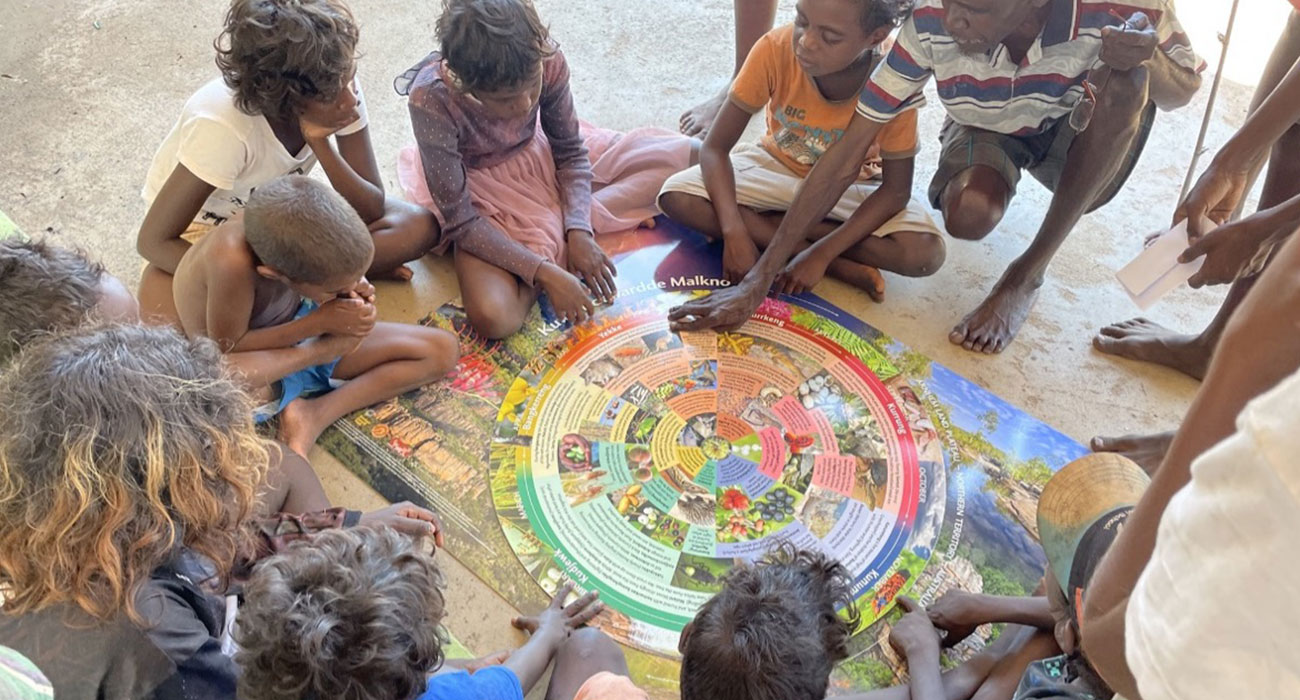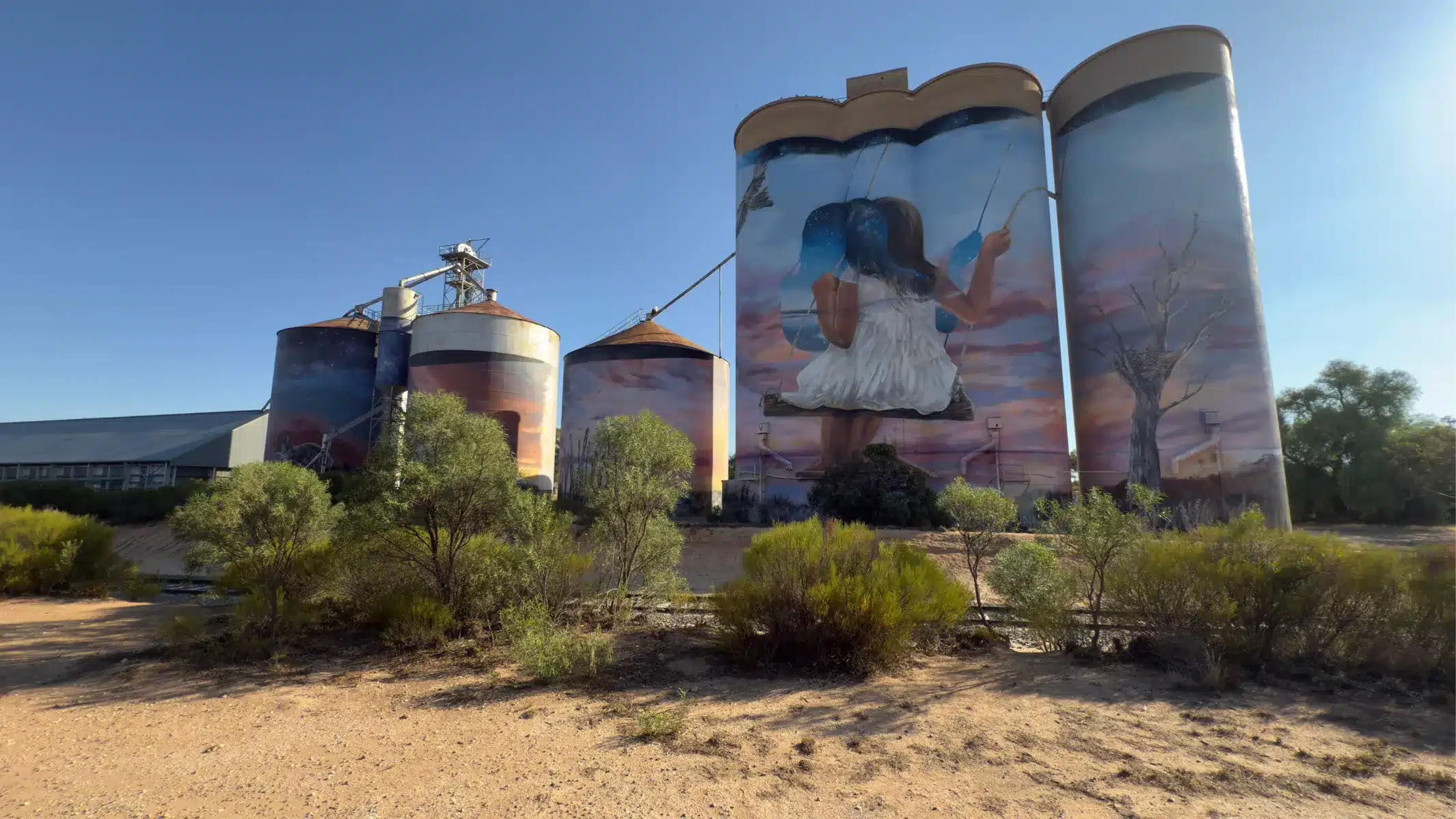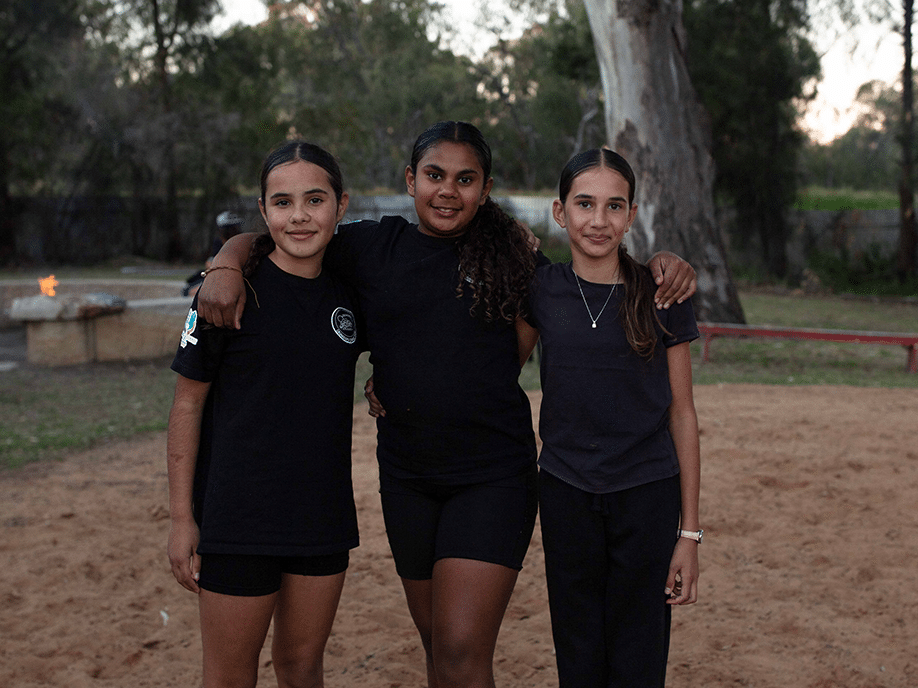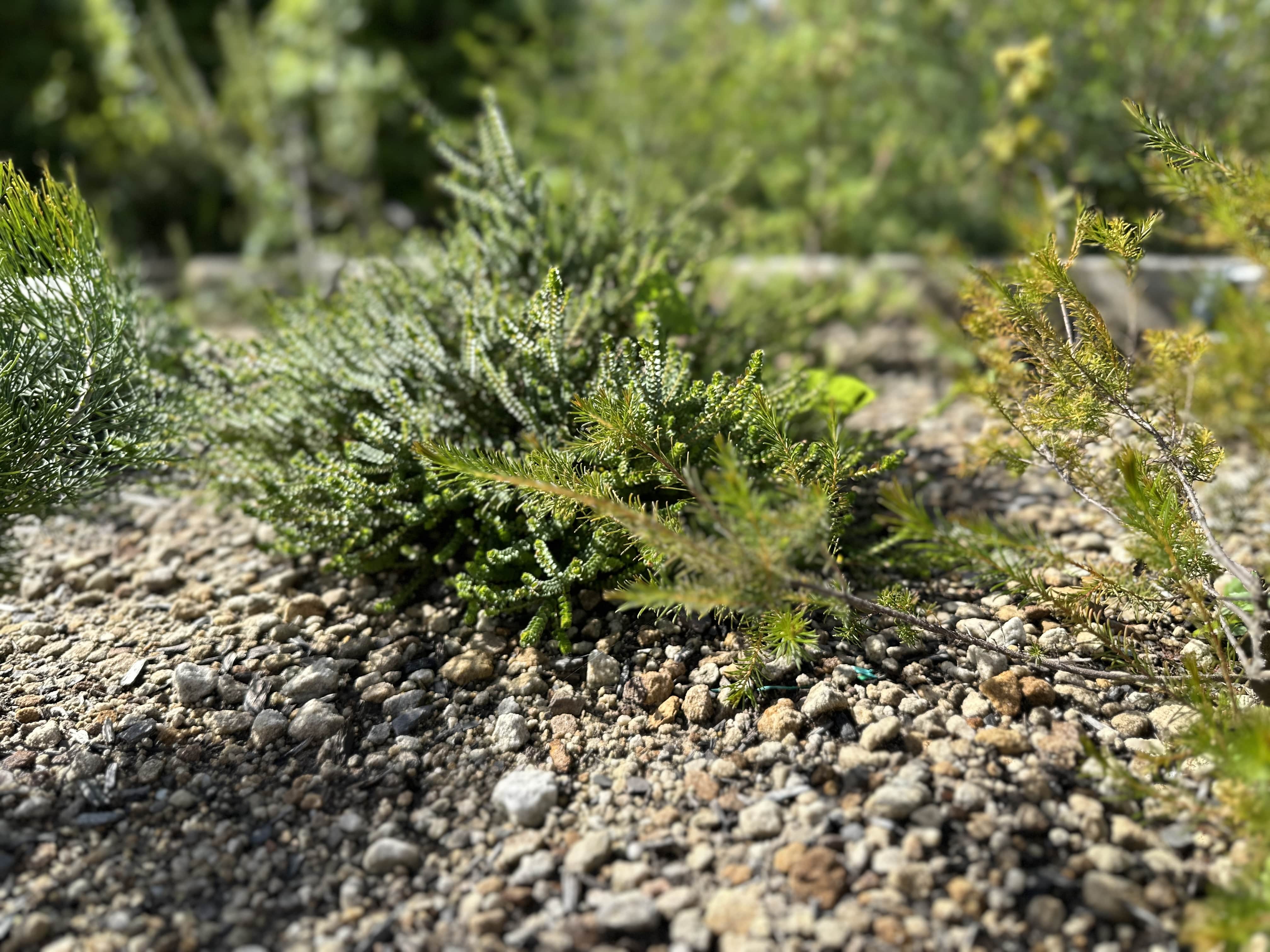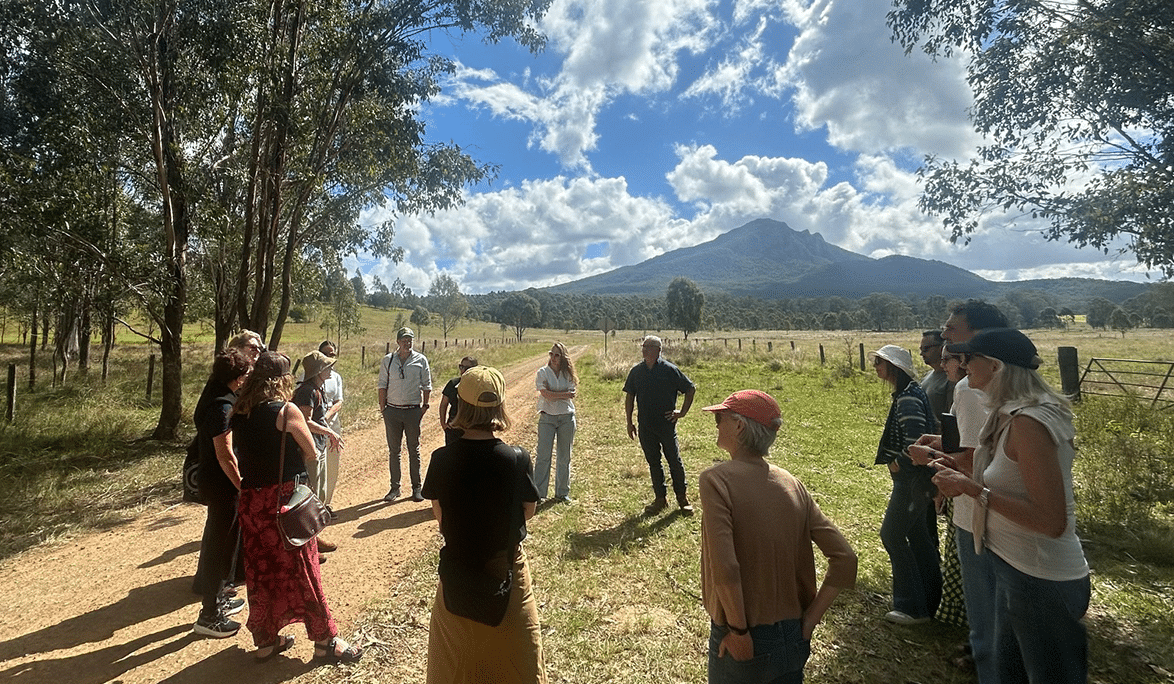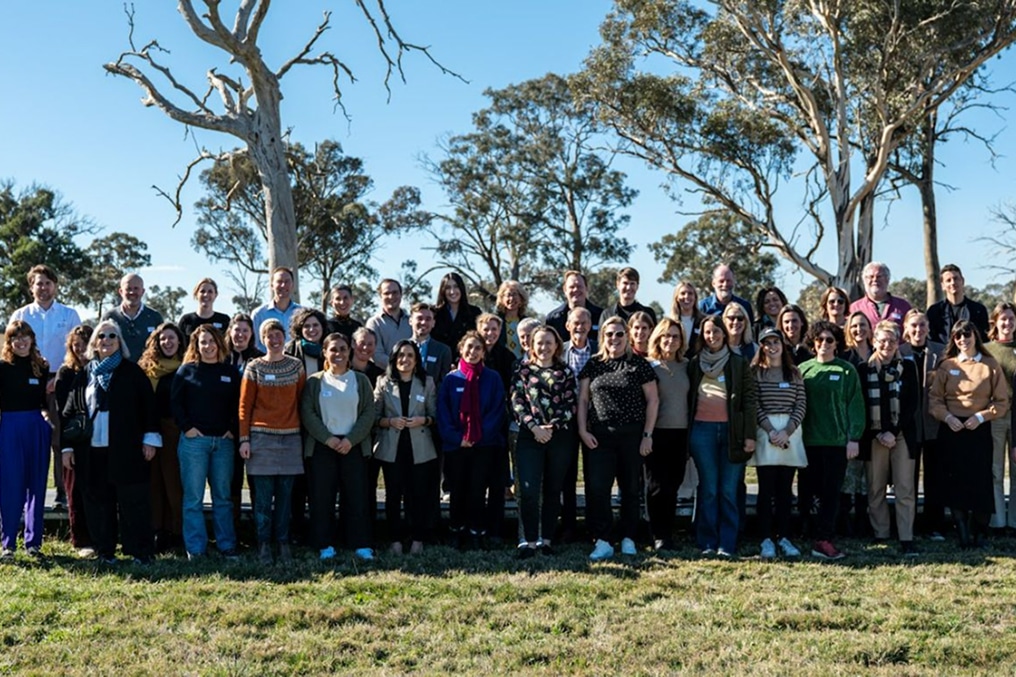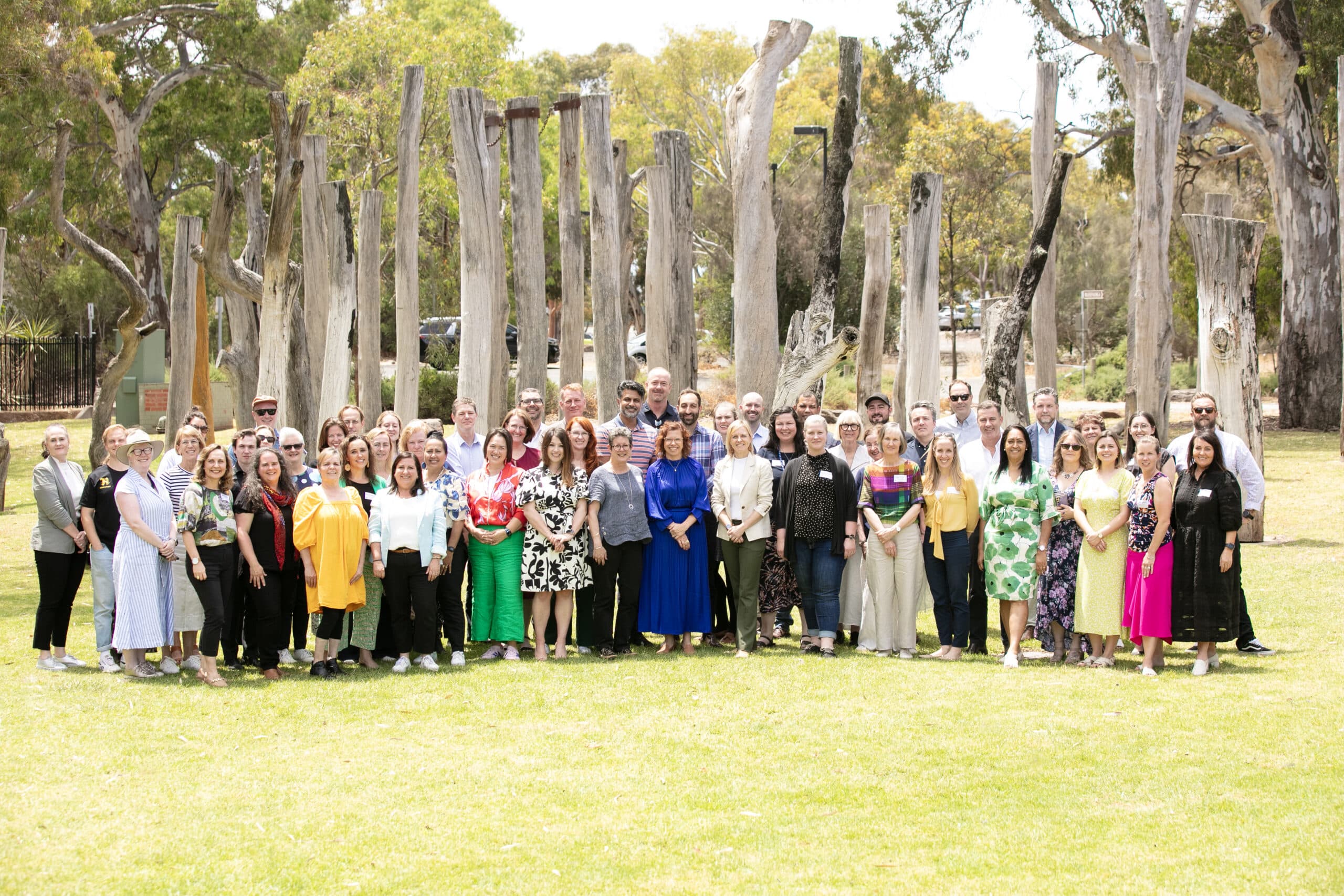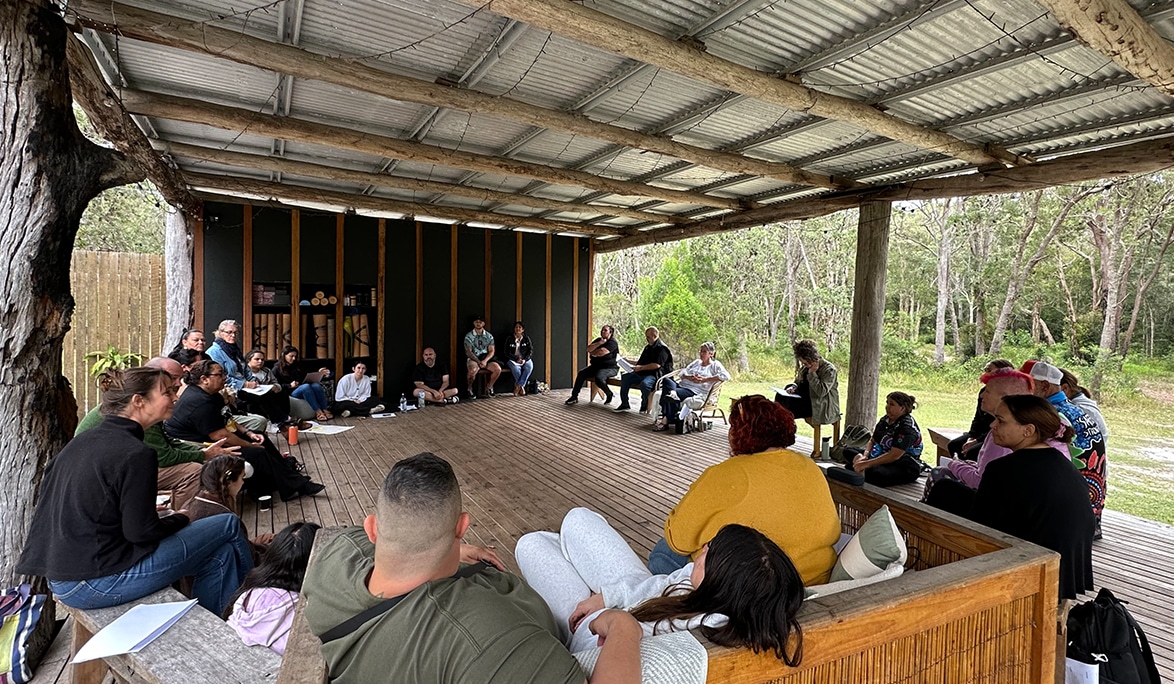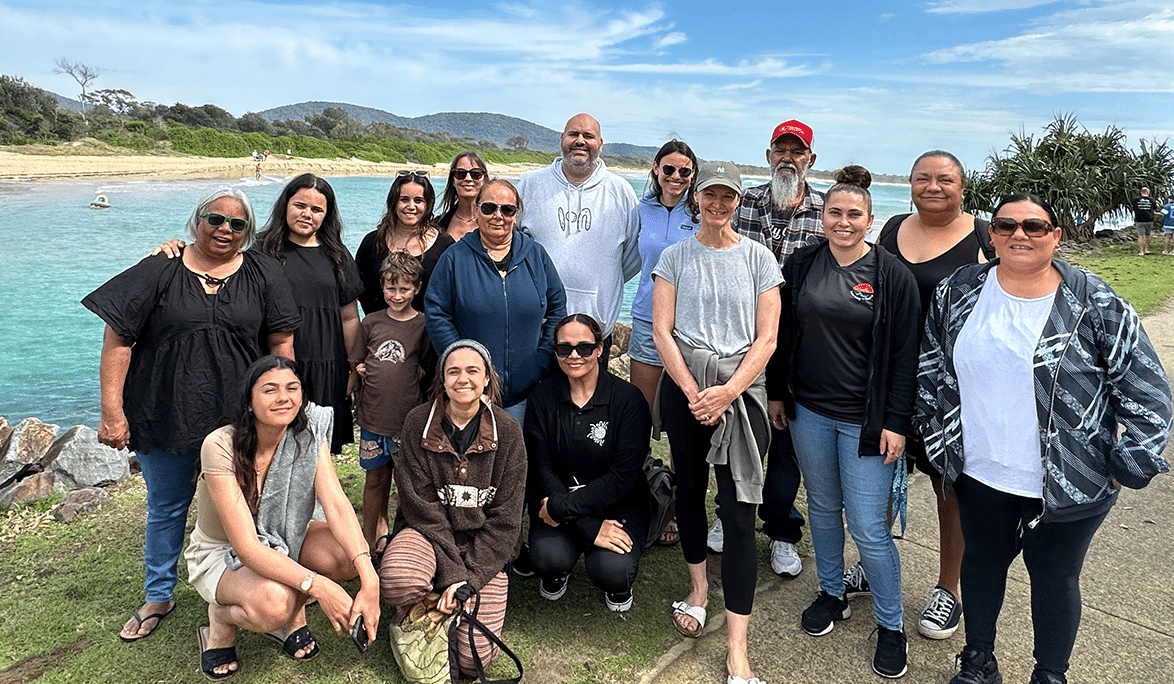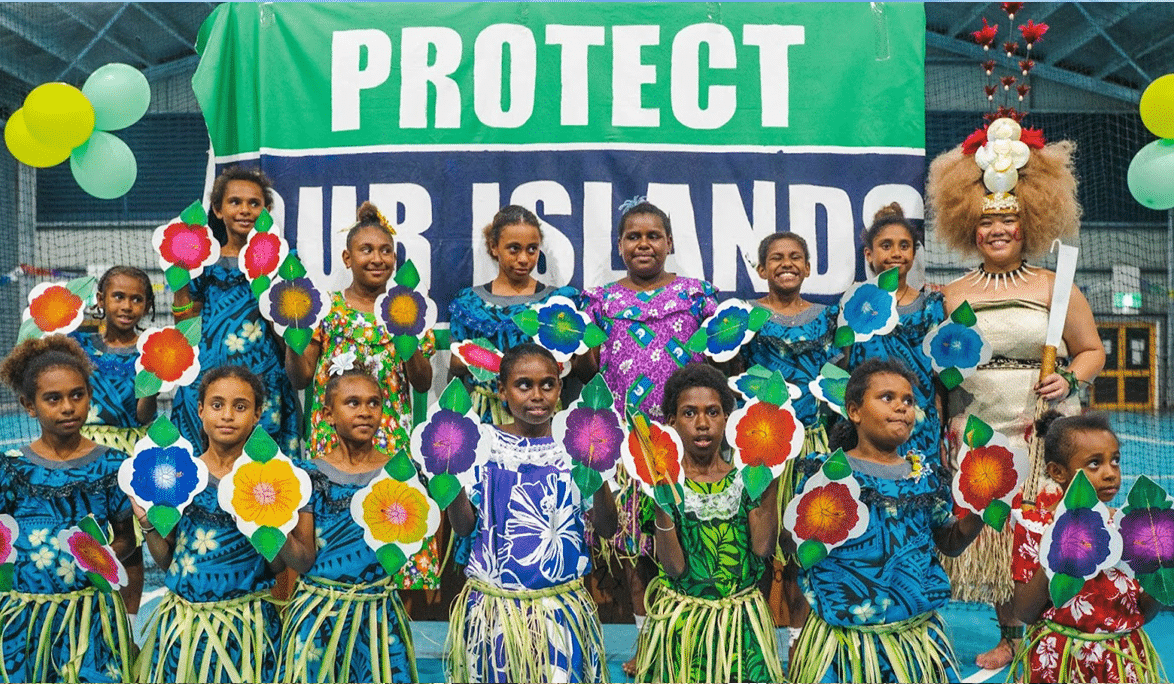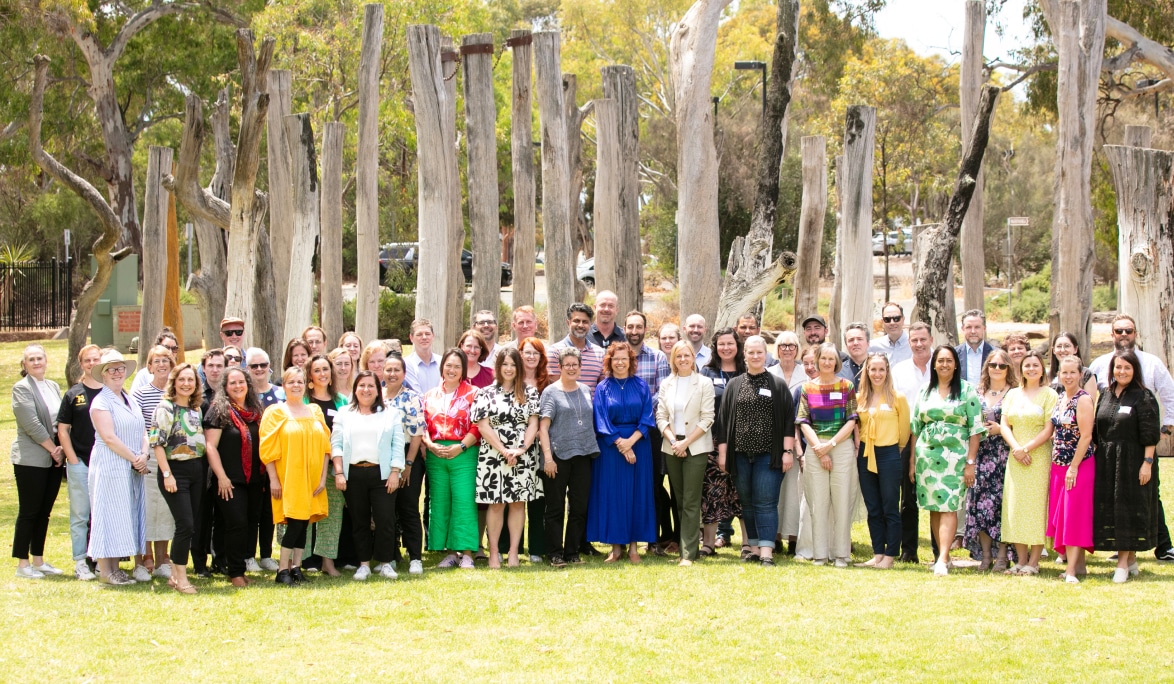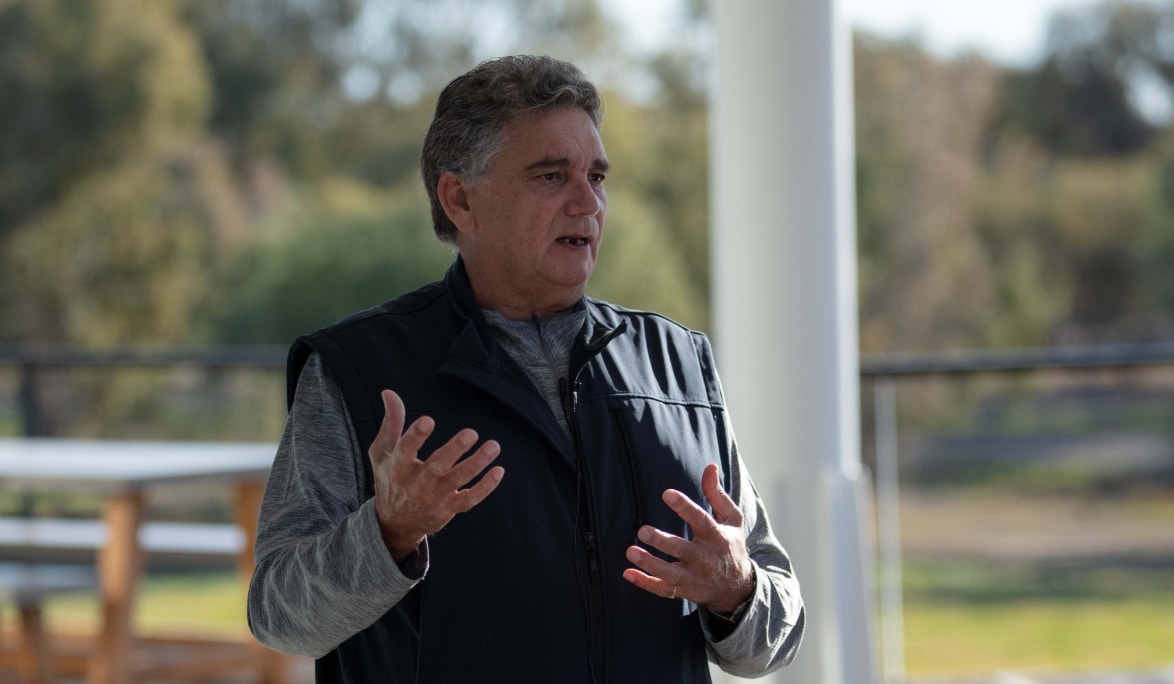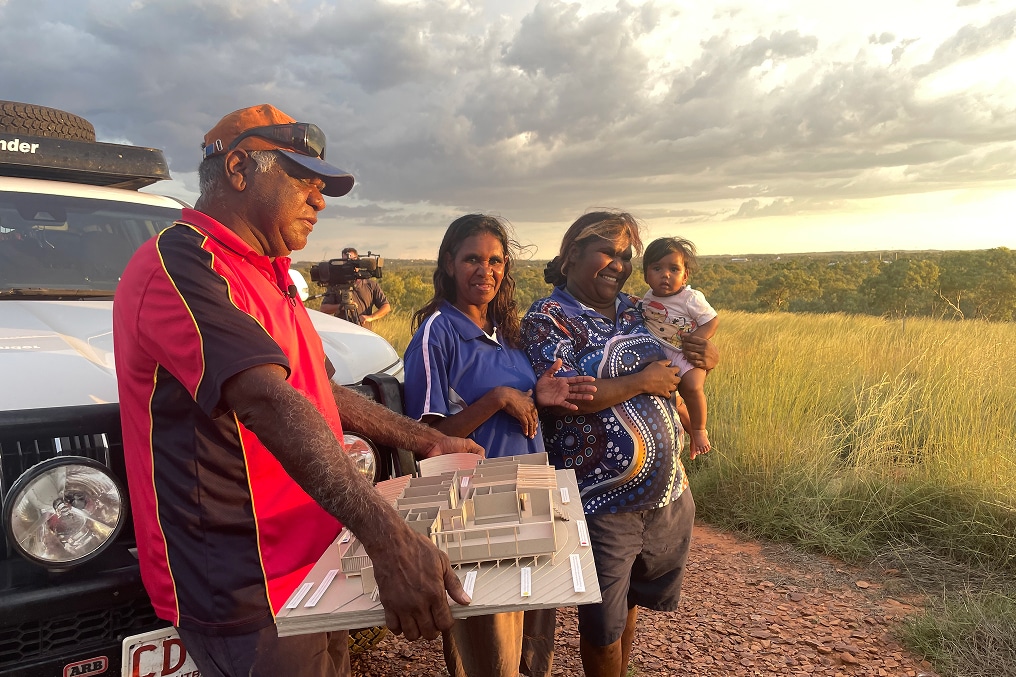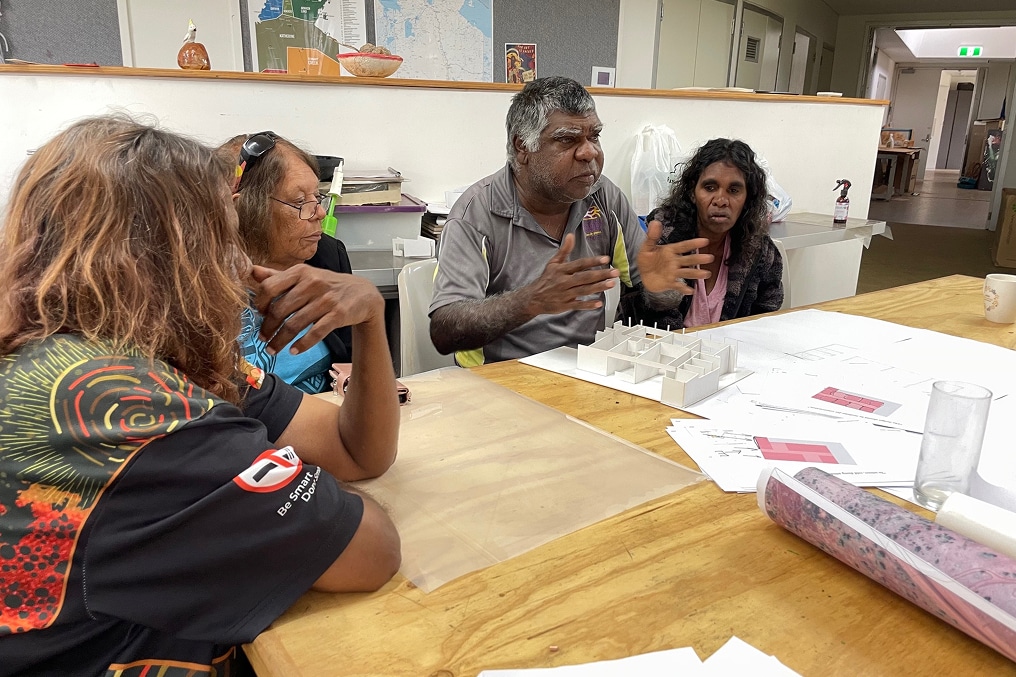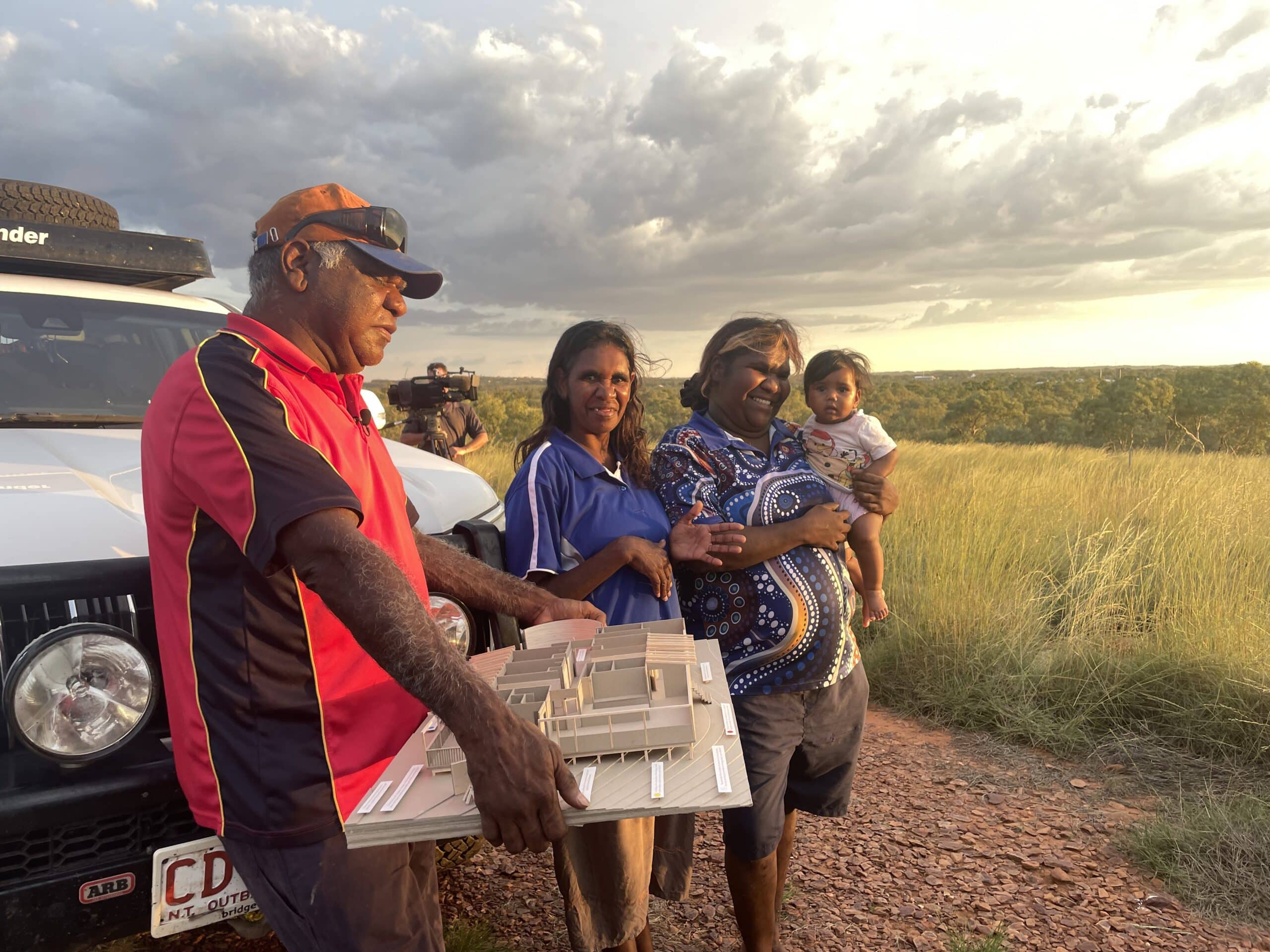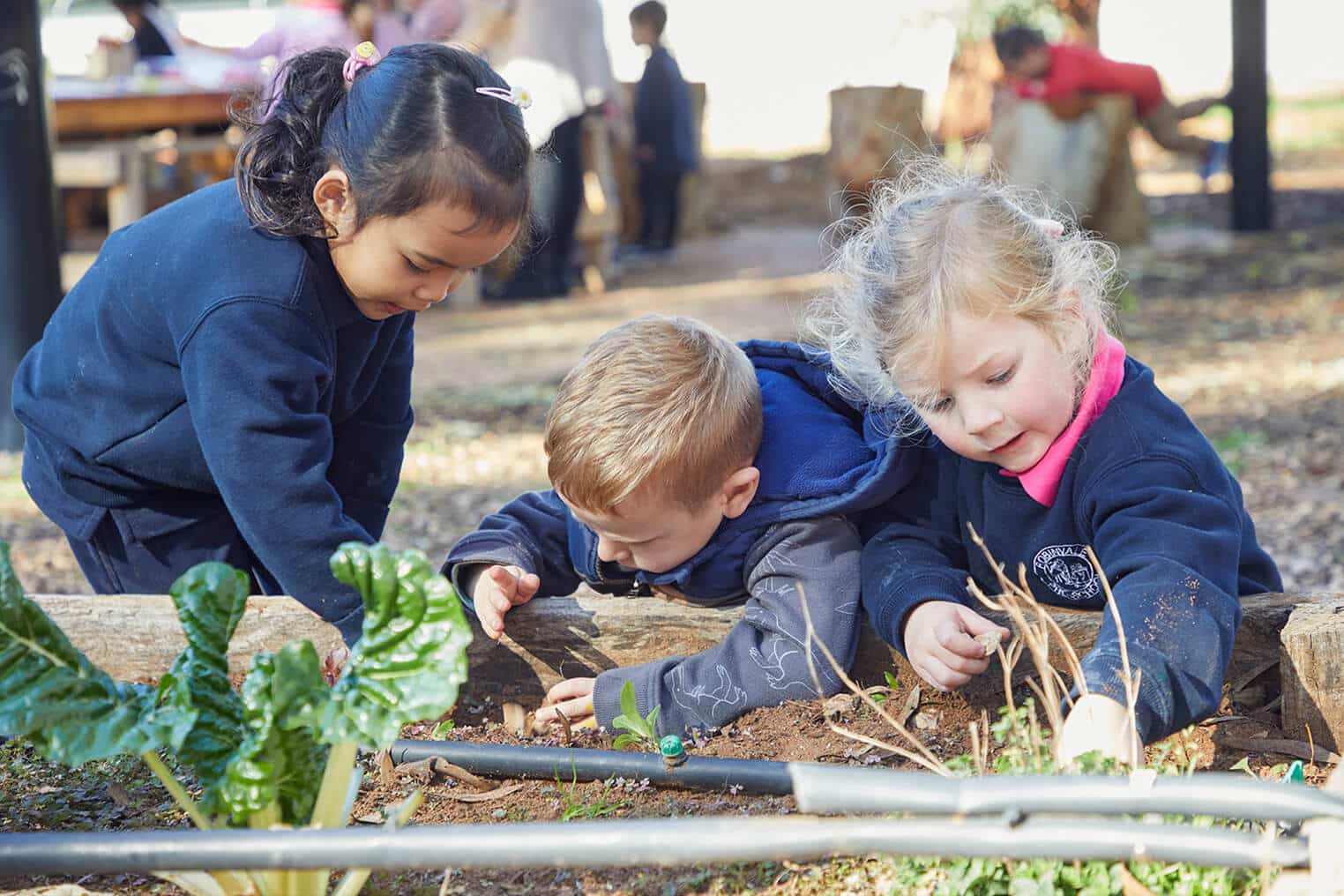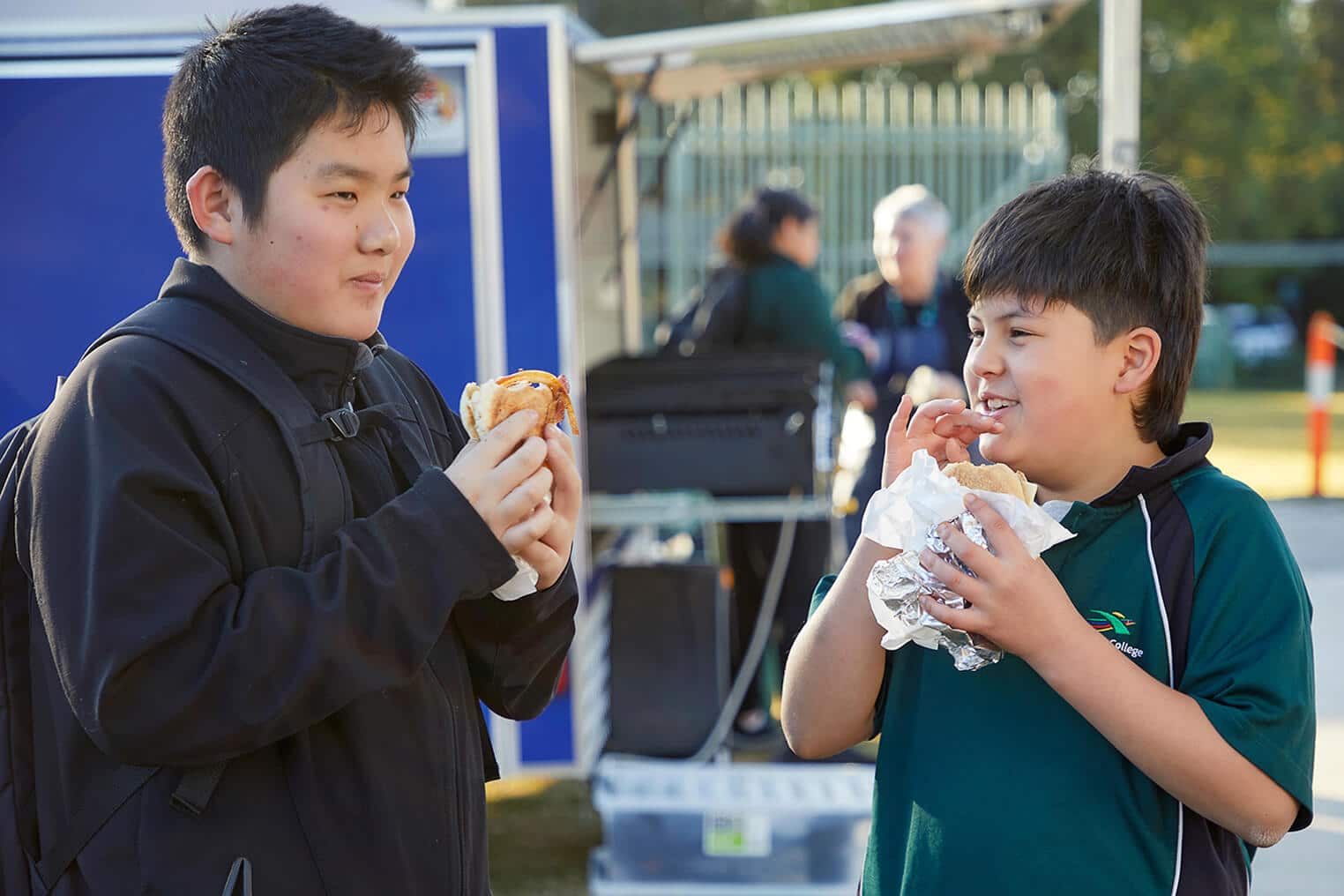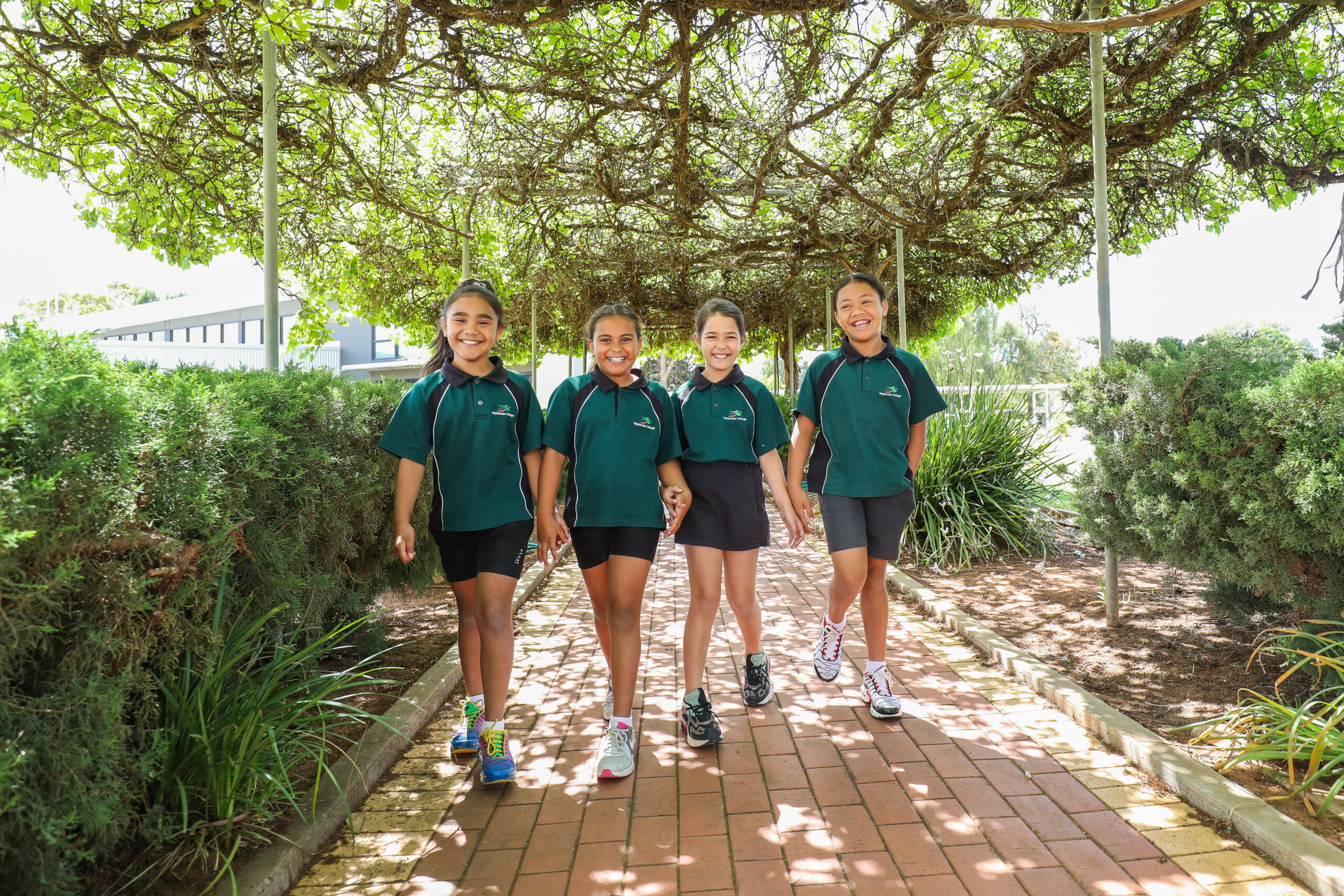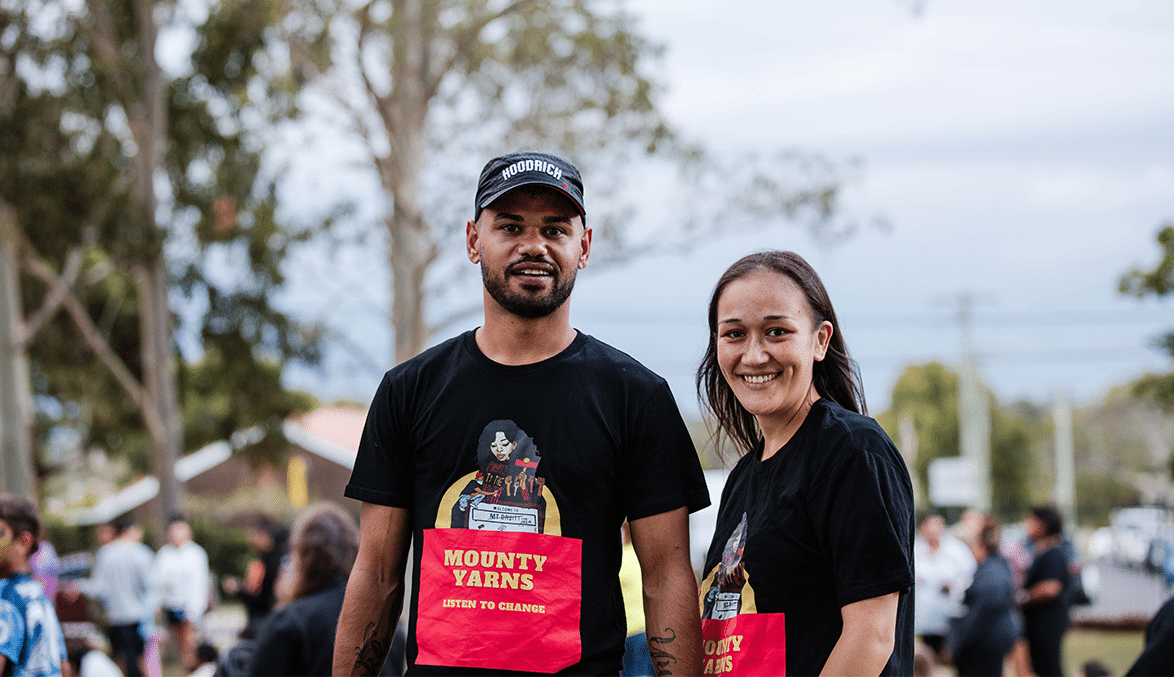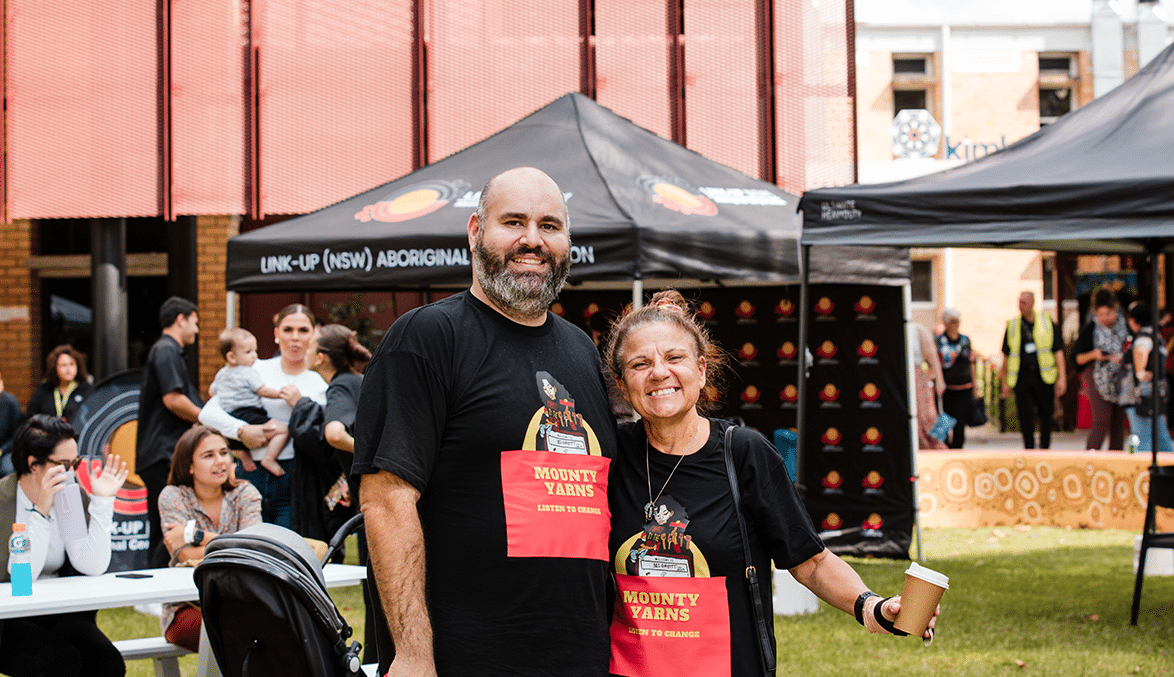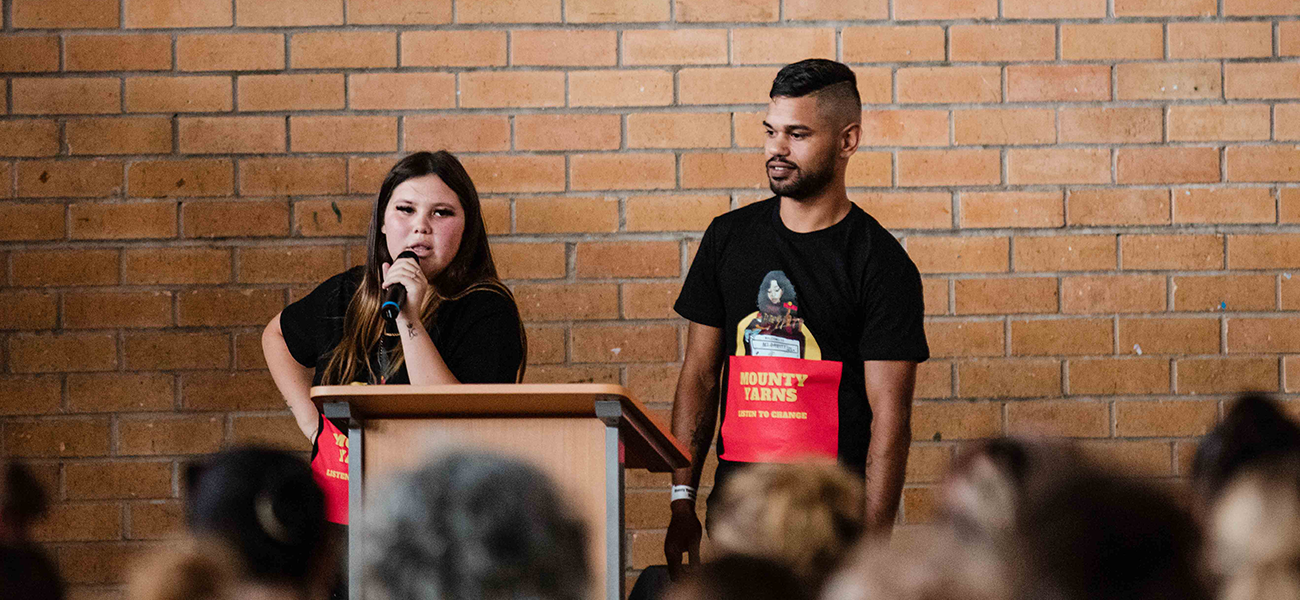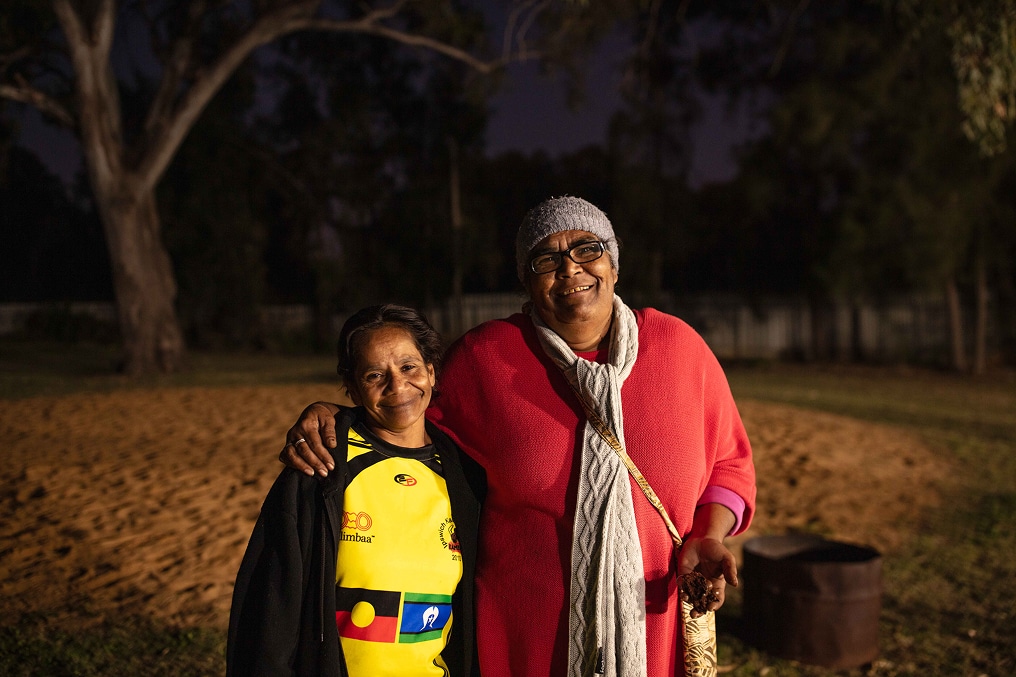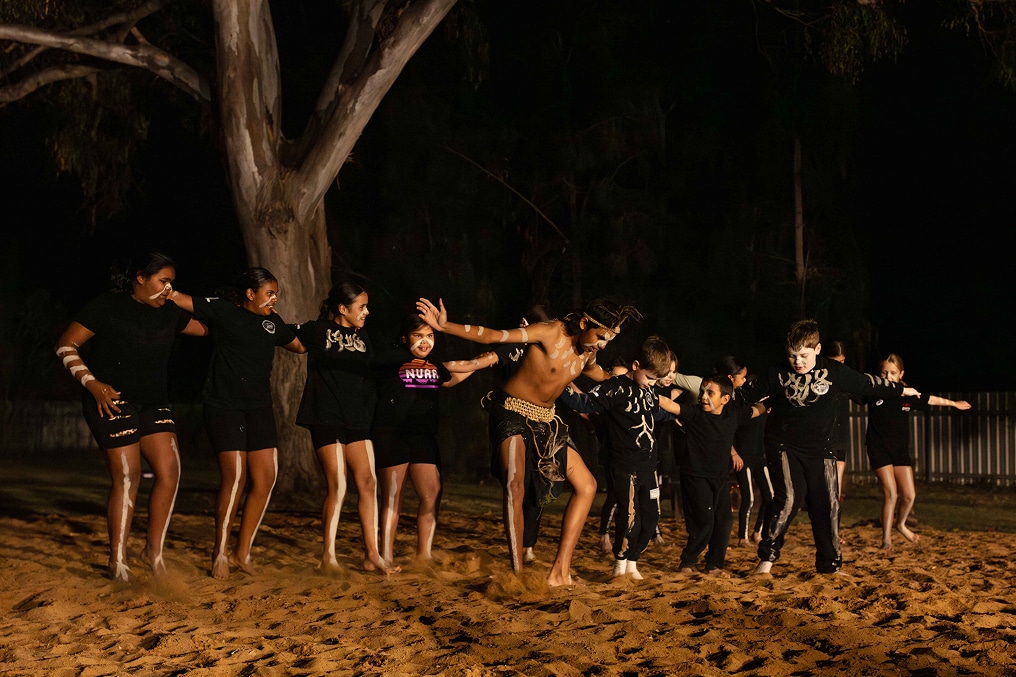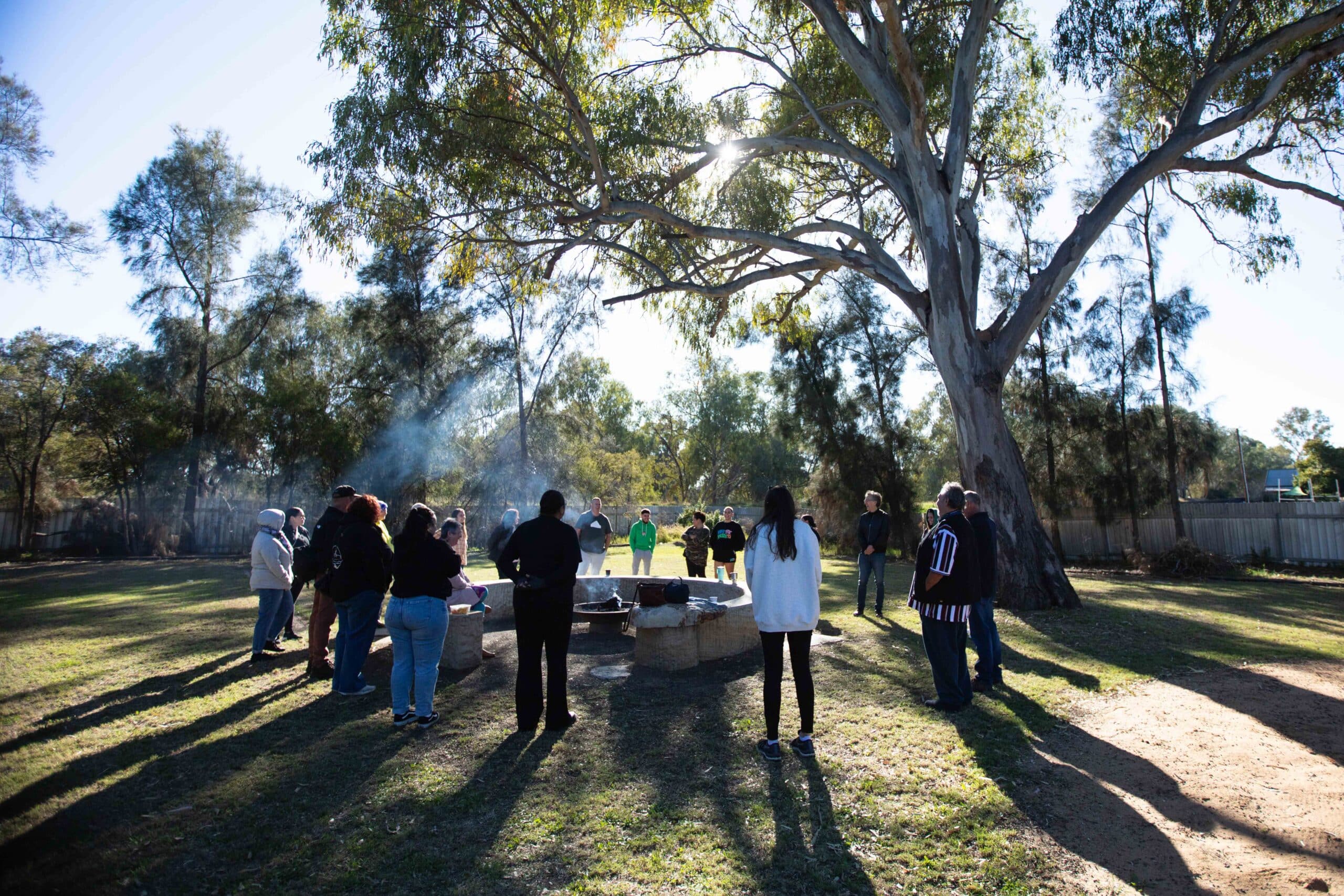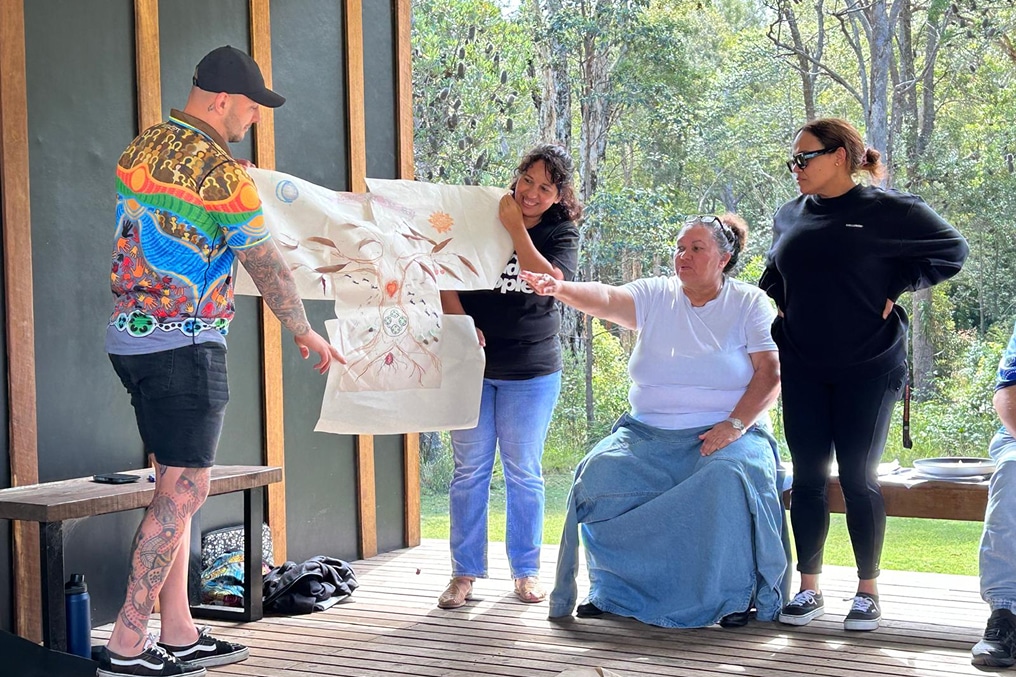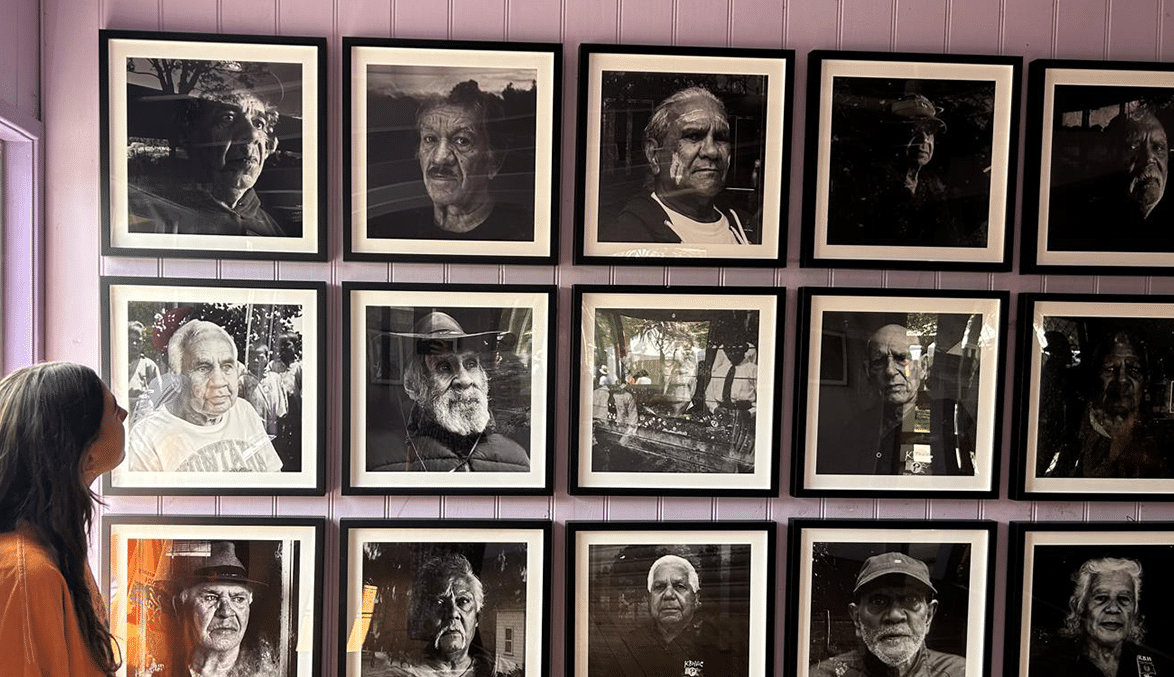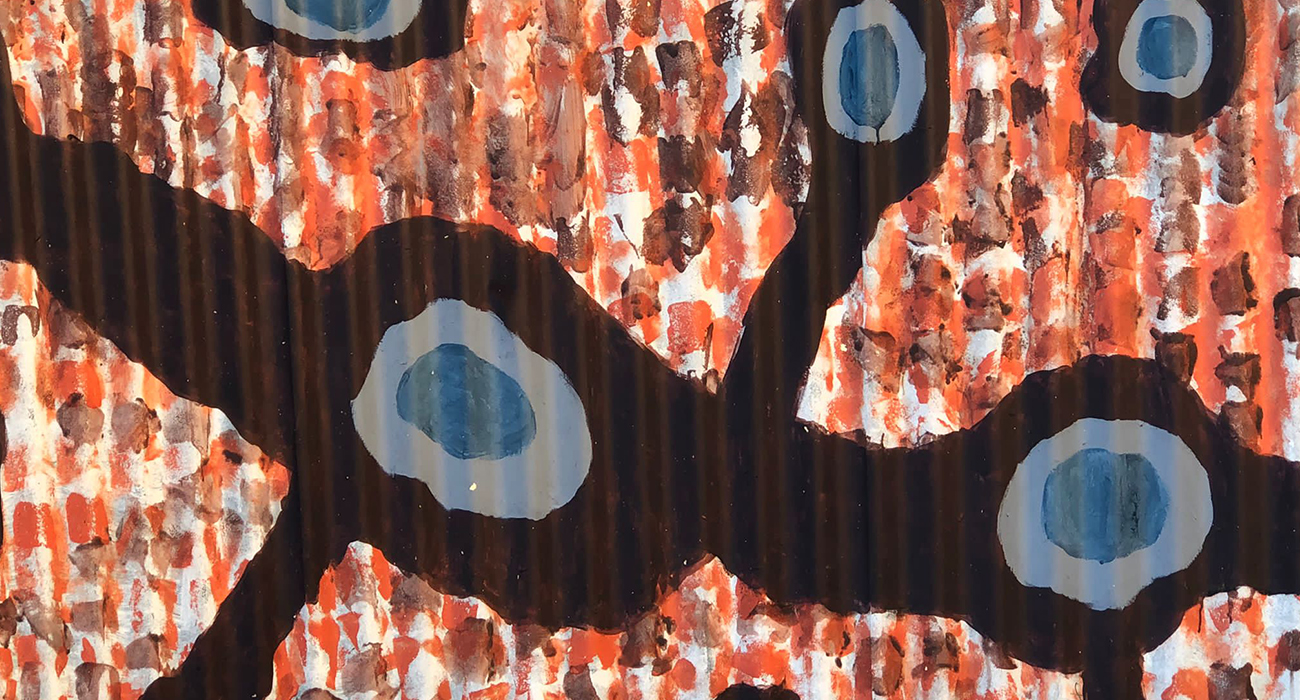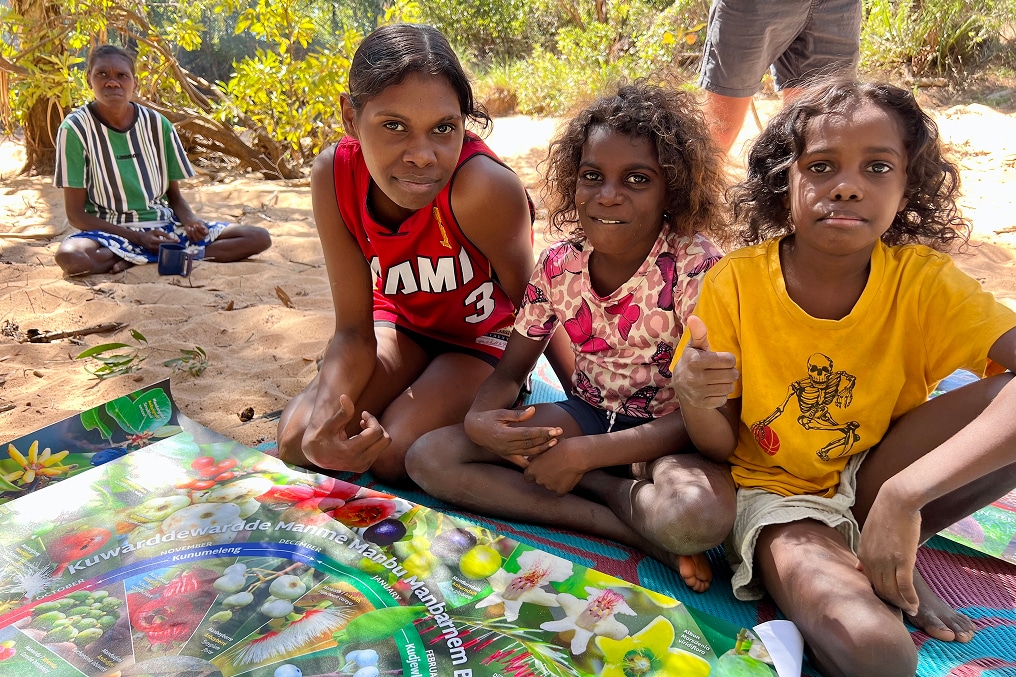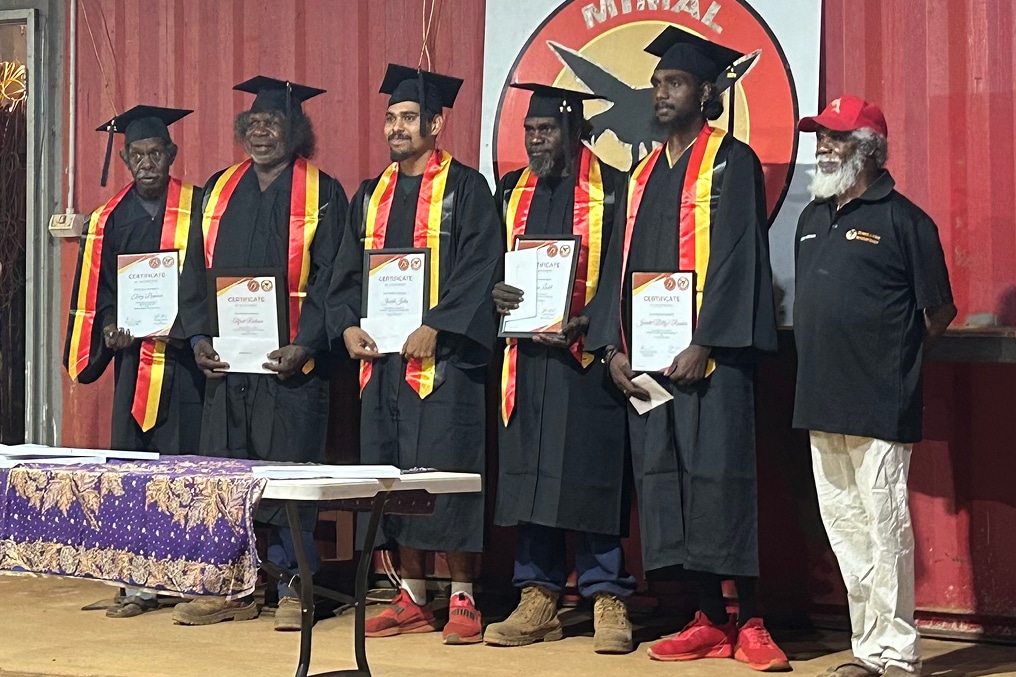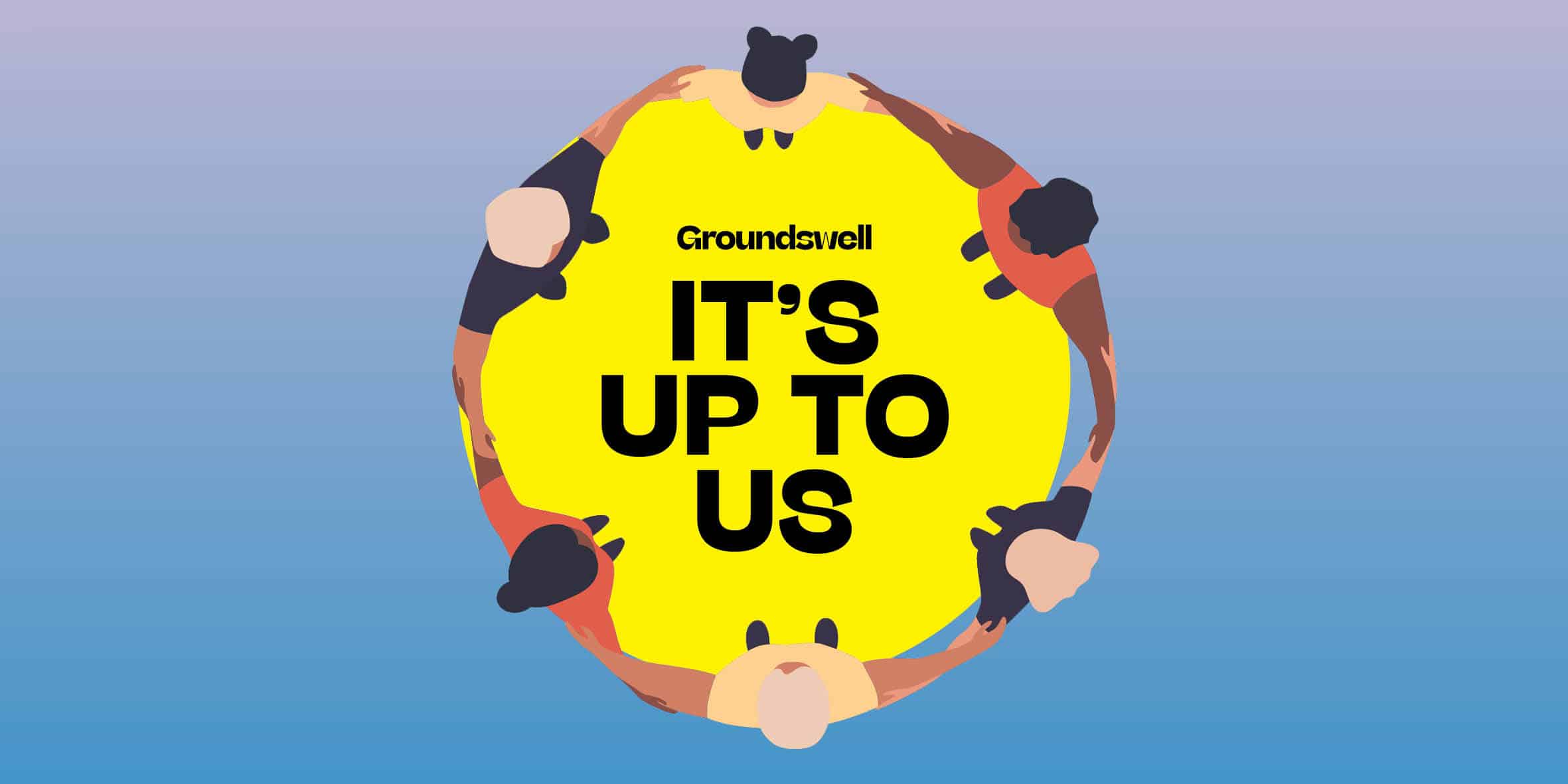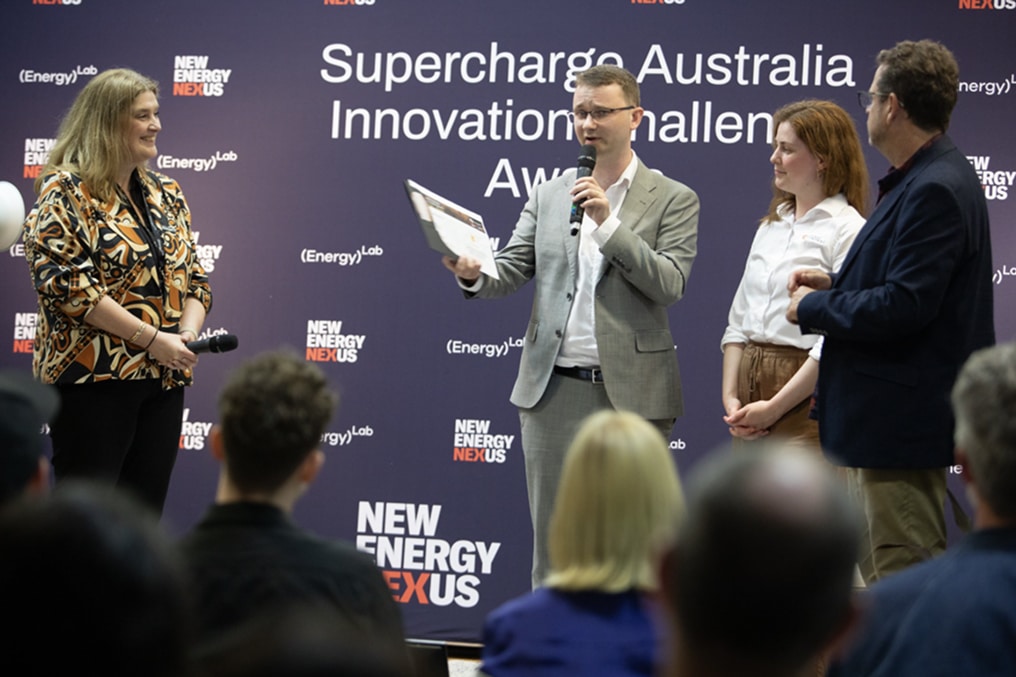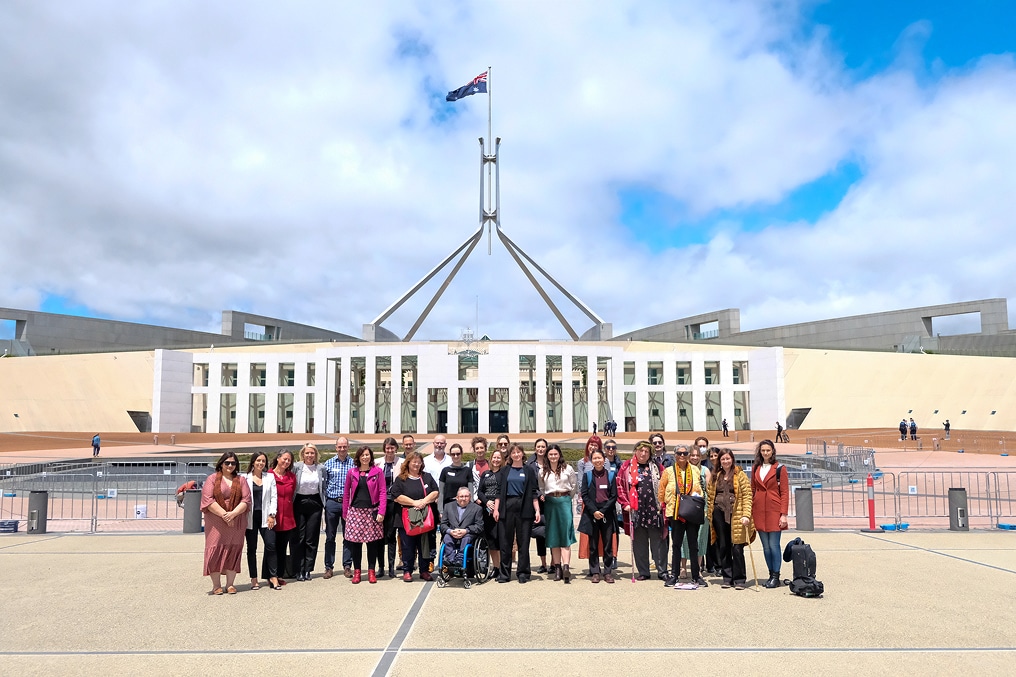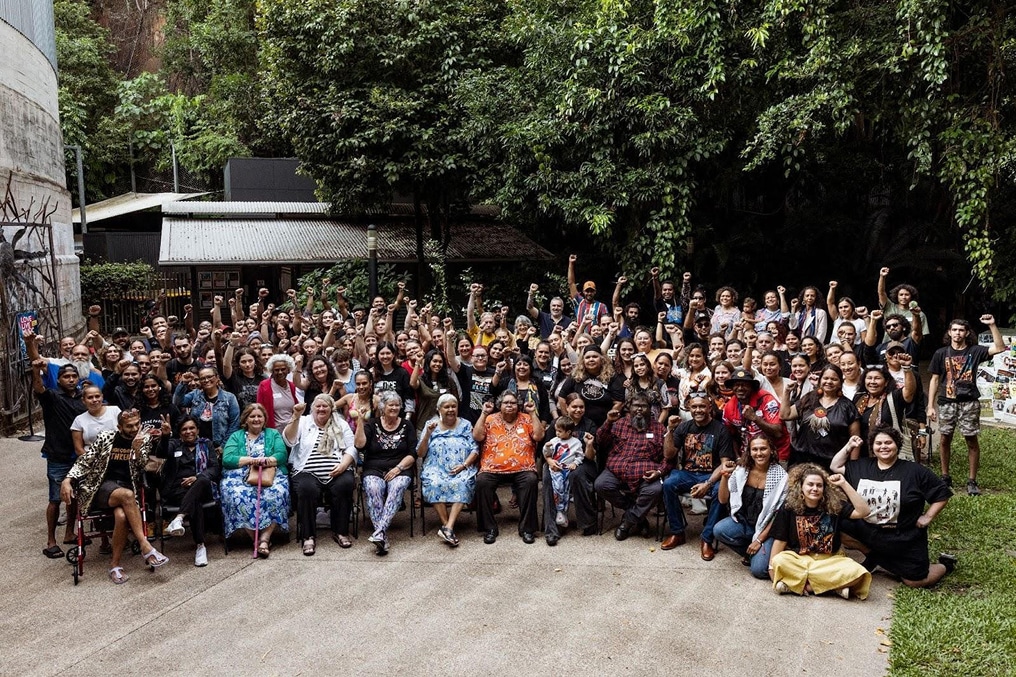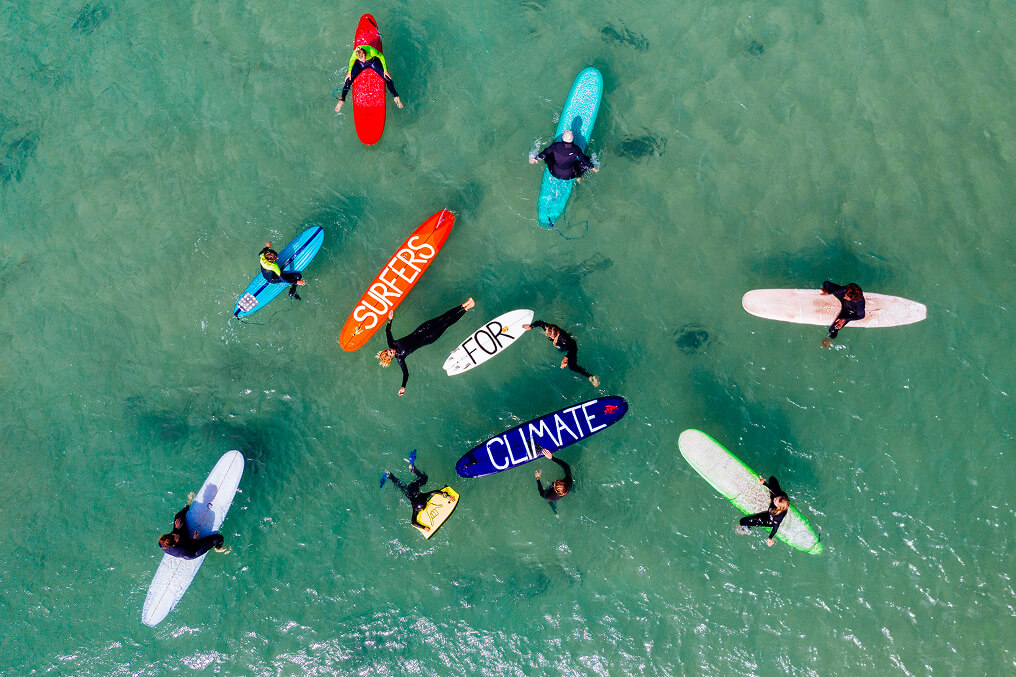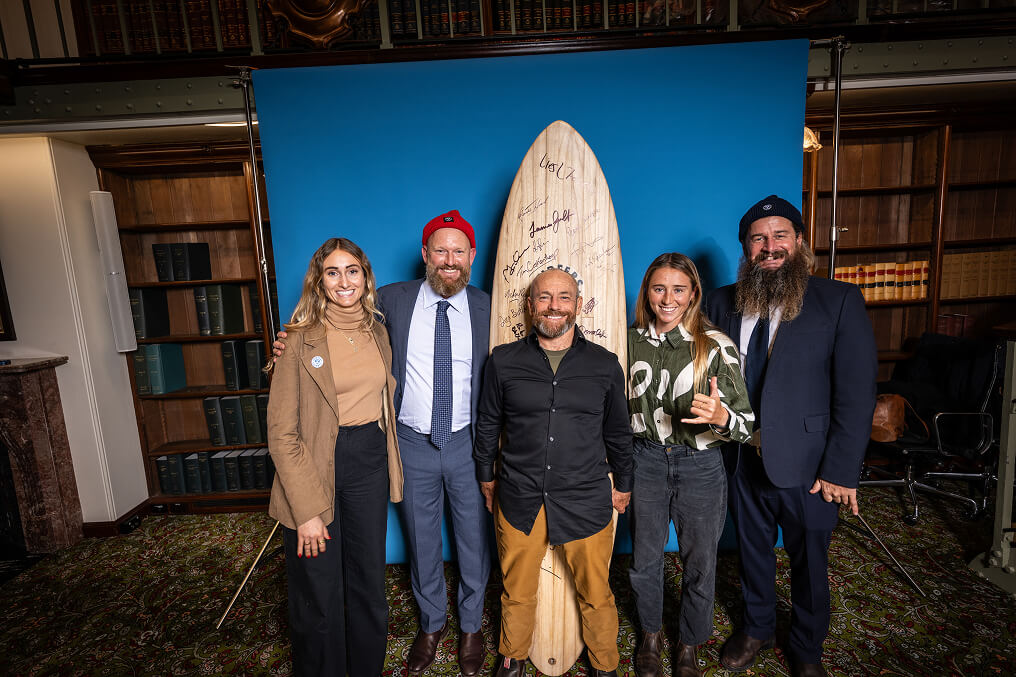In this part of the Northern Territory, receiving an education can be a real challenge. The public school system only provides up to two days (if any at all) of education per week with limited bi-cultural or bilingual learning. This can make it difficult for rangers and their family to live on, and care for their Country.
This community owned bi-cultural school was established in 2015 with the support of Karrkad Kanjdji Trust (KKT) to provide full-time education to children living in the Kabulwarnamyo community. Now families in the Manmoyi and Mamardawerre communities can also access full-time education for the first time.
Each campus has two permanent teachers, up to four casual Indigenous teaching assistants and up to 20 students. Communities have joint ownership of Nawarddeken Academy, actively overseeing the direction of the school and participating in the education of their children on a daily basis.
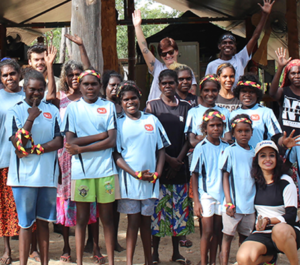 .
. 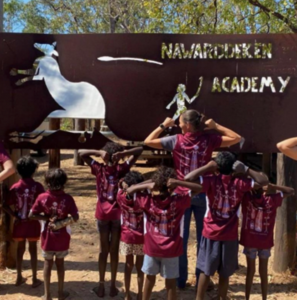 .
. 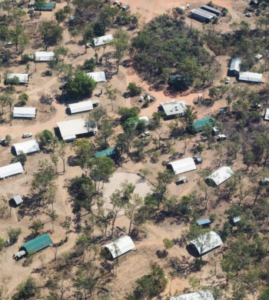
Images left to right: Manmoyi school children and teachers, Nawarddeken Academy and Kabulwarnamyo, the home of Nawarddeken Academy from the air.
Teachers deliver a curriculum centred around the Kuwarddewardde Malkno (Stone Country Seasonal Calendar), integrating national learning outcomes with the seasonality and deep cultural knowledge of the Warddeken Indigenous Protected Area. The calendar includes environmental indicators for many customary activities such as seasonal burning and bush tucker collection. Elders are passionate about recording and preserving knowledge for future generations.
This unique curriculum exposes students to important teaching and learning experiences from Indigenous and non-Indigenous knowledge systems, to make children strong in both worlds.
Dusseldorp Forum partners with the Karrkad Kanjdji Trust to support bi-cultural education on-country. This is just one element of KKT’s holistic approach to sustain the long-term, self-determination of the Nawarddeken people to live, work and learn on-country while re-establishing cultural practices and transferring knowledge to the next generations of custodians.
You can learn more in this recent Philanthropy Australia podcast.
